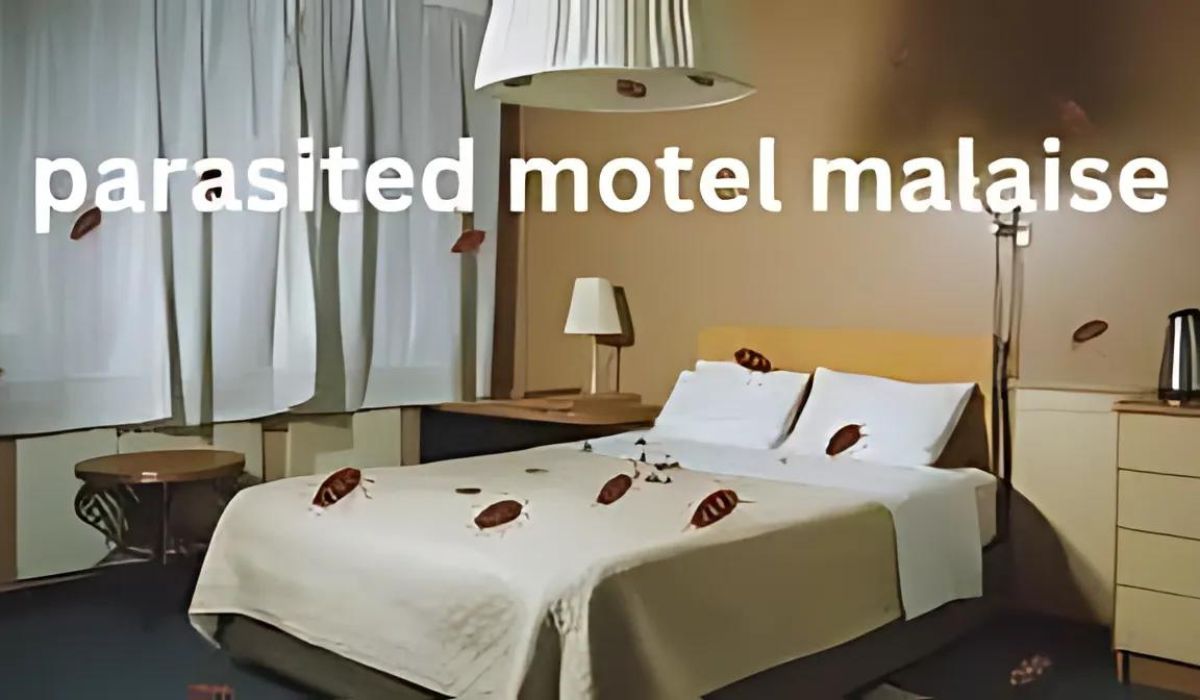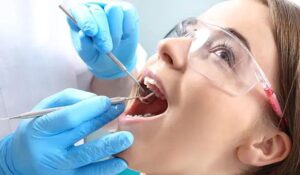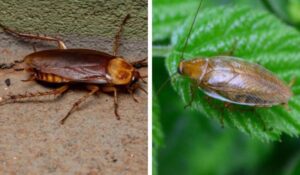Introduction
Parasited motel malaise refers to the discomfort and negative experiences guests encounter when staying in motels infested with pests or parasites. This phenomenon can significantly impact a guest’s comfort, health, and overall experience. Common culprits include bed bugs, fleas, and other unwanted pests that thrive in poorly maintained environments.
When guests discover infestations, their perception of cleanliness and safety in the establishment diminishes. This can lead to negative reviews, loss of business, and even legal repercussions for motel owners. Understanding the causes, effects, and solutions to parasited motel malaise is crucial for both guests and motel operators.
By examining this issue, we can identify preventive measures and solutions that enhance the guest experience and maintain the motel’s reputation. Let’s explore the various aspects of parasited motel malaise, from common pests to effective management strategies.
Common Pests in Motels
Pests are a significant concern in motels, leading to parasited motel malaise. Common offenders include bed bugs, which are notorious for their ability to hide in bedding and furniture. These small insects feed on human blood, leaving itchy bites that can lead to sleepless nights and anxiety for guests.
Fleas are another common pest, often found in motels that allow pets. They can jump from animals to humans, causing uncomfortable bites and allergic reactions. Additionally, cockroaches are frequently associated with unsanitary conditions and can spread diseases.
Understanding these common pests is essential for both guests and motel owners. Awareness helps guests take preventive measures, while operators can implement effective pest control strategies. Regular inspections and maintenance play a crucial role in minimizing the risk of infestations and ensuring a comfortable stay for guests.
Signs of Infestation
Identifying signs of infestation early is crucial to addressing parasited motel malaise. Guests should be vigilant upon entering their rooms. Common indicators include small brown stains on bedding or upholstery, which may indicate bed bug droppings. Guests may also notice tiny eggs or shed skins in hidden areas.
Increased itching or redness on the skin, especially after sleeping, can signal the presence of pests. Fleas often leave small, red, itchy bites, while bed bugs typically cause welts that appear in clusters.
Motel staff should conduct regular inspections to identify these signs. Areas like mattresses, baseboards, and behind furniture should be thoroughly checked. Prompt action is essential; if signs of infestation are detected, immediate measures should be taken to address the issue. Early detection helps maintain guest comfort and protects the motel’s reputation.
Health Risks Associated with Infestations
Parasited motel malaise poses several health risks for guests. The most immediate concern is skin reactions caused by pest bites. Bed bugs can lead to itching, welts, and secondary infections from scratching. Fleas can cause allergic reactions in sensitive individuals.
Beyond physical discomfort, infestations can have psychological effects. Guests may experience anxiety or insomnia, leading to a stressful stay. This emotional toll can affect overall well-being and satisfaction with the motel experience.
Moreover, some pests, like cockroaches, can spread pathogens that contribute to respiratory issues and gastrointestinal diseases. Keeping motels free of infestations is essential not only for guest comfort but also for their health. Understanding these risks underscores the importance of effective pest management strategies in the hospitality industry.
Preventive Measures for Motels

Implementing preventive measures is vital for motels to combat parasited motel malaise. Regular inspections are the first step; these should occur at least quarterly to identify potential infestations before they become widespread. Staff should be trained to recognize signs of pests and report them immediately.
Proper sanitation practices are also crucial. Motels should ensure that rooms are cleaned thoroughly, with particular attention to bedding, carpets, and furniture. Washing linens in hot water and vacuuming regularly can help reduce the risk of infestations.
Additionally, motels should educate guests about preventing pests. Providing information on how to inspect luggage and clothing before entering the room can empower guests to take proactive steps. By combining regular inspections with effective cleaning practices, motels can significantly reduce the likelihood of pest-related issues.
Addressing Infestations: Step-by-Step Guide
When a pest infestation is confirmed, quick and effective action is essential to address parasited motel malaise. The first step is to remove affected guests from the infested room and provide them with alternative accommodations. This action helps maintain guest satisfaction and prevents the spread of pests.
Next, the motel should contact a licensed pest control professional to assess the situation. A thorough inspection and treatment plan should be developed. Treatments may include chemical solutions, heat treatments, or steam cleaning, depending on the type of pest.
After treatment, it’s crucial to monitor the situation closely. Follow-up inspections should be scheduled to ensure that the infestation has been eradicated. Additionally, communicating openly with guests about the situation helps maintain trust and transparency. Addressing infestations promptly and professionally demonstrates a commitment to guest comfort and safety.
Legal Implications of Pest Infestations
Pest infestations can lead to serious legal implications for motels, making it essential to manage parasited motel malaise effectively. If guests suffer due to infestations, they may seek compensation for damages, which can include medical expenses or emotional distress. Negative reviews can also harm a motel’s reputation, leading to decreased bookings.
In some cases, local health departments may become involved, leading to fines or even forced closure if infestations are severe. Therefore, motel owners must be proactive in pest management to avoid these potential legal consequences.
Implementing thorough pest control measures, maintaining clear communication with guests, and keeping detailed records of inspections and treatments can help protect against legal issues. Awareness of the legal landscape surrounding pest management is crucial for motel operators.
Guest Awareness and Education
Educating guests about the importance of pest awareness can significantly mitigate parasited motel malaise. When guests understand how to recognize signs of pests, they can take proactive steps to protect themselves. For example, inspecting bedding, luggage, and personal belongings upon arrival can help identify potential issues early.
Motels can provide informational pamphlets or digital resources outlining what to look for and how to report concerns. Encouraging guests to communicate any discomfort or signs of pests promptly can lead to quicker resolutions and maintain a positive experience.
Additionally, implementing a guest feedback system can help identify trends related to pest concerns. By fostering a culture of awareness and communication, motels can enhance the overall experience and prevent infestations from becoming a widespread issue.
The Future of Pest Management in Motels
As the hospitality industry evolves, so too will pest management strategies in motels. The future may see advancements in technology, such as the use of smart sensors to detect pest activity early. These systems can alert staff to potential issues before they escalate, allowing for rapid response.
Additionally, eco-friendly pest control methods are gaining popularity. Many guests prefer establishments that prioritize sustainability, so motels may increasingly adopt green pest management solutions. These methods are not only effective but also minimize the environmental impact.
Furthermore, ongoing education and training for staff will remain crucial. As new pests emerge and regulations change, keeping staff informed will ensure that motels remain compliant and effective in managing infestations. By embracing innovation and prioritizing education, motels can create safer, more enjoyable experiences for guests.
FAQs
What is parasited motel malaise?
It refers to discomfort caused by pest infestations in motels.
What common pests are found in motels?
Bed bugs, fleas, and cockroaches are the most common.
How can I identify a pest infestation?
Look for stains, bites, and signs of pests on bedding and furniture.
What health risks are associated with infestations?
Risks include skin reactions, anxiety, and exposure to diseases.
What preventive measures should motels take?
Regular inspections, proper sanitation, and guest education are crucial
What steps should be taken if an infestation is confirmed?
Remove affected guests, contact pest control, and monitor the situation.
What are the legal implications of pest infestations?
Motels may face lawsuits, fines, and reputational damage.
How can guests protect themselves from pests?
Inspect bedding and luggage upon arrival and report concerns immediately.
What role does guest education play in pest management?
Educated guests can identify issues early, leading to quicker resolutions.
What is the future of pest management in motels?
Expect advancements in technology and a focus on eco-friendly solutions.
Conclusion
Parasited motel malaise is a significant concern that can impact both guest comfort and motel reputation. By understanding common pests, signs of infestation, and effective management strategies, both guests and motel operators can work together to ensure a pleasant experience. Proactive measures, ongoing education, and effective communication are essential in combating infestations. Ultimately, a commitment to cleanliness and pest management will enhance guest satisfaction and maintain the integrity of the motel industry.










































